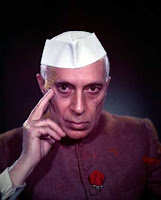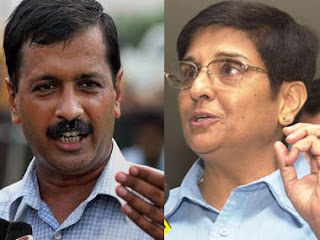Students often ask me who is more powerful - a politician, or a bureaucrat? The answer can be quite nuanced, and detailed.
First, the basic definitions.
A politician is one who represents her/his people, and makes the primary decisions on matters that decide the mode of assets/resources distribution & sharing. In rare instances, she/he may decide on life-and-death matters too (warfare/ terror/ abortion/ religion/ health etc.)
A bureaucrat is one who brings broad or narrow sectoral expertise and administrative acumen to help the politician achieve the goals the policies have set. She/he is not required to earn public approval, and is more permanent in that sense. For the purpose of this answer, I'll include all types of civil services under this definition. Also, my answer is not restricted to just India.
Let's begin listing the powers and limitations -
Hope this helped!
Promo:
For excellent educational services, check these out:
All Courses www.pteducation.com/Courses
For IIM-CAT Prep http://www.pteducation.com/mba.aspx
For UPSC Prep http://www.pteducation.com/upsc.aspx
~
 |
| Compare! |
A politician is one who represents her/his people, and makes the primary decisions on matters that decide the mode of assets/resources distribution & sharing. In rare instances, she/he may decide on life-and-death matters too (warfare/ terror/ abortion/ religion/ health etc.)
A bureaucrat is one who brings broad or narrow sectoral expertise and administrative acumen to help the politician achieve the goals the policies have set. She/he is not required to earn public approval, and is more permanent in that sense. For the purpose of this answer, I'll include all types of civil services under this definition. Also, my answer is not restricted to just India.
Let's begin listing the powers and limitations -
 |
| Ambedkar, the lawmaker |
- Laws: A politician makes the laws. A bureaucrat implements them through drafting of micro rules, regulations and by running the implementation machinery. Together, they become the sarkaar.
- Sanction: A politician earns public approval through elections. A bureaucrat earns his position through a process of examination.
- Harmony: Due to point 2, a politician can harmonise mutually antagonistic perceptions of various communities. A bureaucrat will never be in a position to do so.
- Visible Power: A politician can muster up public support to protest government actions, or bureaucratic apathy, inaction or opposition. A bureaucrat can seek legal/systemic redressal only, and not hit the street to voice grievances.
- Entrepreneurship: A politician can run a business empire in parallel, either clandestinely or openly (as long as he/she can prove an arm's length connection). A bureaucrat automatically earns disqualification if he turns a commercial entrepreneur.
- Stability: A politician rides a lion all through his career. A bureaucrat walks the concrete road of system and processes.

Iron Ladies - Margaret & Indira - Scope: A politician can transform the entire selection process of bureaucrats. A bureaucrat can significantly delay or sabotage the politician's desire to do so, by apathy, inaction or complexification.
- Limits: Due to society's general inertia, a cunning and immoral politician almost exclusively reserves the right to indulge in abusive verbiage, harassment and criminal activities. A bureaucrat will have to be extremely stealthy about it!
- Grandiloquence: A politician can massage his ego regularly by making grandiose statements like - "an investment of Rs 1 lac crore will soon be made to achieve world class output in X sector". A bureaucrat cannot say anything like this ever unless formally sanctioned by the government after policy making.
- Stamina: A politician runs the gauntlet frequently, and has to face abusive crowds, heat and dust of the land, and rough and tumble of political conspiracies. It requires the skin of a pachyderm to endure and succeed. A bureaucrat can stay aloof, dedicated, quiet and still achieve a lot.
- One up: A politician can transfer a bureaucrat. A bureaucrat can arrest / prosecute a politician.
- Leeway: A politician can make loose interpretations of the law. A bureaucrat can make subjective interpretations of the politician's directives.
- Money: A politician can make a lot of money, without being perceived as being dishonest. An honest bureaucrat cannot.

Pandit Nehru - Transformation: A single politician can transform a nation completely. Examples - Pt. Nehru (India), Deng Xiaoping (PRC), Mikhail Gorbachev (USSR), General Zia ul Haq (Pakistan), Nelson Mandela (S Africa), Abraham Lincoln (USA). A single bureaucrat just cannot. The reverse is equally true - a single evil politician with determination can totally destroy his people, and entire bureaucracy may be unable to do anything about it.
- Enablers: A politician can create an enabling environment for bureaucrats to deliver. Example - PM Shri Narendra Modi. A determined bureaucrat can transform a single system to enable long term political stability. Example - Ex Chief Election Commissioner Shri T N Seshan (IAS) who radically improved Indian electoral processes.
- Intersection: A politician can, in certain situations, act like a true bureaucrat. Example - the Constituent Assembly that drafted the nitty-gritty of the elaborate Indian constitution. A bureaucrat can, in certain situations, control the raging fires of separatism. Example - IPS officer J F Ribiero in Punjab during the insurgency.
- Crossing over: A politician cannot usually crossover to become a bureaucrat. Many bureaucrats become politicians. Examples - Ajit Jogi (ex IAS), Arvind Kejriwal (ex IRS), Kiran Bedi (ex IPS).

Arvind Kejriwal (IRS), Kiran Bedi (IPS) - Losing their sleep: A politician loses sleep when public support wanes. A bureaucrat may lose sleep when political support wanes!
- Transparency: A politician can subject everyone else, except himself, to public scrutiny. A bureaucrat can do nothing about it. Example - the RTI Act in India, which presently exempts political parties from scrutiny
- Peace of mind: Whomsoever you may be, this surely has to be earned!
Hope this helped!
Promo:
For excellent educational services, check these out:
All Courses www.pteducation.com/Courses
For IIM-CAT Prep http://www.pteducation.com/mba.aspx
For UPSC Prep http://www.pteducation.com/upsc.aspx
~

